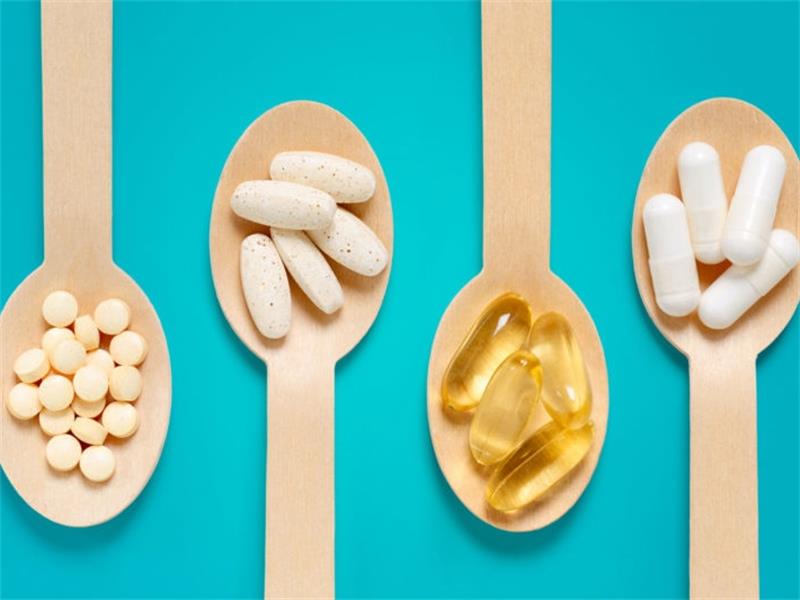Contents
The Importance of Supplements for Optimal Health
When it comes to achieving optimal health, there’s no question that nutrition is a key factor. However, even if you’re eating a healthy diet, it can be difficult to get all the nutrients your body needs from food alone. That’s where supplements come in.
Supplements are designed to provide your body with the vitamins, minerals, and other nutrients it needs to function at its best. They can help fill in any nutritional gaps in your diet and support your overall health and well-being.
But with so many supplements out there, it can be overwhelming to know where to start. That’s why we’ve compiled a list of some of the best supplements for optimal health – from essential vitamins and minerals to performance-enhancing supplements and rare gems that you might not have heard of before.
So whether you’re looking to boost your energy levels, support your immune system, or improve your athletic performance, there’s likely a supplement out there that can help you achieve your goals. Let’s dive in!
Essential Supplements
Multivitamins: what they are and Why they’re Important
Multivitamins are supplements that contain a range of essential vitamins and minerals. They are designed to provide your body with the nutrients it needs to function properly.
It’s important to understand that multivitamins are not a replacement for a healthy diet, but rather a supplement to support it. One of the benefits of taking multivitamins is that it can help fill nutritional gaps in your diet.
Most people don’t consume enough fruits and vegetables, which means they miss out on many essential vitamins and minerals. A good multivitamin can help ensure you get the recommended daily intake of these nutrients.
When choosing a multivitamin, look for one that contains at least 100% of the recommended daily allowance (RDA) for each vitamin and mineral. Be sure to follow the recommended dosage on the label, as taking too much can be harmful.
Omega-3 fatty acids: benefits and sources
Omega-3 fatty acids are essential fats that our bodies cannot produce on their own. They play an important role in brain function, heart health, and reducing inflammation throughout the body.
The two main types of omega-3 fatty acids are EPA (eicosapentaenoic acid) and DHA (docosahexaenoic acid). These can be found in cold-water fish such as salmon, mackerel, and sardines.
If you don’t eat fish or prefer not to consume animal products, you can also get omega-3s from plant-based sources such as flaxseed oil or chia seeds. Studies have shown that omega-3s may have numerous health benefits such as reducing inflammation in the body, improving brain function, and lowering blood pressure levels among others.
Vitamin D: why it’s crucial and how to get enough
Vitamin D is an essential nutrient that plays a critical role in bone health. It helps your body absorb calcium and phosphorus, which are necessary for strong bones. Without enough vitamin D, children can develop rickets and adults can develop osteoporosis.
One of the best ways to get vitamin D is by spending time in the sun. When your skin is exposed to sunlight, it produces vitamin D. However, many people don’t get enough sun exposure due to lifestyle or living in areas with limited sunshine.
If you’re not getting enough vitamin D through sun exposure or diet (found in foods like fatty fish, egg yolks, and fortified milk), supplements might be necessary. The recommended daily allowance for adults is 600-800 IU (international units) per day.
However, some people may require more depending on their age, weight, or medical conditions. Multivitamins are a great way to fill nutritional gaps in your diet; Omega-3s have numerous benefits including reducing inflammation throughout the body; Vitamin D is important for bone health and can be obtained through sun exposure or supplements if needed.
Niche Supplements
Probiotics: Gut Health and Immune System Support
Probiotics are live microorganisms that provide health benefits when consumed in adequate amounts. They are beneficial bacteria that help maintain a healthy gut by preventing the growth of harmful bacteria and improving digestion.
A healthy gut is essential for overall health, as it helps support a strong immune system, nutrient absorption, and mental well-being. Probiotics come in different forms, including fermented foods like yogurt and kefir, as well as supplements.
The supplement form allows you to consume specific strains of probiotics that target certain conditions like irritable bowel syndrome (IBS), allergies, and skin problems. When choosing a probiotic supplement, look for one with at least 10 billion CFUs (colony-forming units) per serving and multiple strains.
Magnesium: Benefits for Sleep, Stress, and Muscle Function
Magnesium is an essential mineral that plays various roles in the body. It is involved in over 300 enzymatic reactions that support muscle function, nerve transmission, energy production, and bone health.
Magnesium deficiency is common due to poor dietary intake or certain medical conditions like diabetes or gastrointestinal issues. One significant benefit of magnesium is its ability to promote relaxation and improve sleep quality.
It helps regulate the neurotransmitters responsible for sleep and reduces cortisol levels (the stress hormone). Magnesium also supports muscle function by improving oxygen uptake during exercise and reducing muscle cramps.
Coenzyme Q10 (CoQ10): Energy Production and Heart Health
Coenzyme Q10 (CoQ10) is a vital antioxidant found in every cell of the body. It plays an essential role in producing energy through cellular respiration by helping convert food into ATP (adenosine triphosphate).
CoQ10 levels decrease with age or due to certain medical conditions like heart disease, Parkinson’s, and migraine headaches. Supplementing with CoQ10 can boost energy levels, protect against oxidative stress, and support heart health.
It has been shown to reduce inflammation in the body and improve markers of cardiovascular disease like blood pressure and cholesterol levels. CoQ10 supplements come in various forms like ubiquinol or ubiquinone, with the former being more bioavailable.
Performance Enhancing Supplements
Creatine: Pump Up Your Muscles and Stamina
Creatine is a popular supplement among athletes and bodybuilders due to its ability to increase muscle strength and endurance. It occurs naturally in the body, where it helps produce ATP, the primary energy source for muscle cells.
By supplementing with creatine, you can increase your muscle stores of this energy-boosting compound, leading to better performance during high-intensity exercises like weightlifting or sprinting. Studies have shown that creatine supplementation can lead to increased muscle mass and strength gains over time.
It can also improve recovery time between workouts by helping your muscles replenish their energy stores more quickly. Creatine is generally considered safe when taken in recommended doses but may cause some mild gastrointestinal discomfort in some individuals.
Beta-alanine: Push Your Limits without Getting Tired
Beta-alanine is an amino acid that helps reduce fatigue during high-intensity exercise. It works by increasing levels of carnosine, a compound found in muscle tissue that helps regulate acidity levels during intense physical activity.
When muscles become too acidic, they can’t contract as efficiently, leading to fatigue and decreased performance. Supplementing with beta-alanine has been shown to increase carnosine levels in muscles, allowing athletes to train harder and longer without experiencing as much fatigue.
This translates into improved performance during activities like sprints or high-intensity interval training (HIIT). However, excessive dosages of beta-alanine may cause tingling sensations on the skin called paresthesia.
Caffeine: Jumpstart Your Body’s Metabolism
Caffeine is a stimulant found in coffee, tea, and many soft drinks. It’s often used as a pre-workout supplement due to its ability to improve focus and endurance while boosting metabolism.
Studies have shown that caffeine can help improve athletic performance by reducing fatigue and increasing alertness during exercise. Caffeine works by blocking the action of adenosine, a neurotransmitter that promotes sleep and relaxation.
This leads to increased levels of adrenaline and dopamine, which can help improve mental clarity while providing an energy boost. However, excessive caffeine consumption may lead to jitters, irritability, or insomnia in some individuals.
The Bottom Line Performance-enhancing supplements like creatine, beta-alanine, and caffeine can provide significant benefits for those looking to push their limits during exercise.
However, they should be used responsibly and in conjunction with a healthy diet and exercise regimen. It’s also important to consult with your healthcare provider before starting any new supplement routine.
Rarely Known Supplements
Ashwagandha: The Stress-Reducing Adaptogen
Ashwagandha is an adaptogenic herb that supports the body’s ability to handle stress. It has been used in Ayurvedic medicine for thousands of years and has recently gained popularity in the West as a natural stress reducer. Ashwagandha works by regulating cortisol, the stress hormone, and can help reduce symptoms of anxiety and depression.
Additionally, studies have shown that ashwagandha can improve immune function, making it a great choice for those looking to boost their overall health. One study found that ashwagandha supplementation reduced cortisol levels by up to 30% in chronically stressed individuals.
Another study showed that ashwagandha improved sleep quality and reduced symptoms of anxiety in participants with a history of chronic stress. If you’re looking to add ashwagandha to your supplement regimen, it’s important to choose a high-quality brand with a standardized extract.
Rhodiola Rosea: The Stress-Busting Brain Booster
Rhodiola Rosea is another adaptogenic herb that has been used for centuries in traditional medicine for its stress-reducing effects. This herb also boosts cognitive function, making it an ideal choice for those who need extra support during stressful times.
Rhodiola Rosea works by reducing the activity of cortisol and increasing levels of neurotransmitters like dopamine and norepinephrine. Several studies have shown that Rhodiola Rosea can improve mental performance under stress and reduce symptoms of depression.
One study found that Rhodiola extracts improved cognitive function on tests related to mental fatigue and concentration in participants who were experiencing burnout from work-related stress. Another study showed that Rhodiola improved symptoms of mild-to-moderate depression when used as an add-on therapy.
N-Acetyl Cysteine (NAC): The Detoxifying Antioxidant
N-acetyl cysteine (NAC) is a precursor to glutathione, one of the body’s most important antioxidants. It has been used in emergency medicine for decades to treat acetaminophen poisoning and is now gaining popularity as a supplement for its detoxifying properties.
NAC helps the body produce more glutathione, which can help neutralize free radicals and support liver function. Studies have shown that NAC can reduce symptoms of respiratory conditions like chronic obstructive pulmonary disease (COPD) and improve symptoms of obsessive-compulsive disorder (OCD).
Additionally, NAC may help reduce oxidative stress caused by environmental toxins like air pollution or heavy metals. If you’re interested in adding NAC to your supplement regimen, it’s important to note that it can interact with some medications and should be used under medical supervision.
Conclusion:
Supplements can be an essential tool for achieving and maintaining optimal health. Multivitamins, omega-3 fatty acids, vitamin D, and other essential supplements can help fill nutritional gaps that may be difficult to meet through diet alone.
Niche supplements like probiotics, magnesium, and CoQ10 can offer targeted support for specific health needs. Performance-enhancing supplements like creatine, beta-alanine, and caffeine may also help improve athletic performance when used correctly.
While the benefits of many supplements are well-documented and backed by scientific evidence, it’s important to remember that they are not a substitute for a healthy diet or lifestyle. Supplements should be used in conjunction with a balanced diet rich in whole foods and regular exercise.
It’s also important to note that not all supplements are created equal. Quality matters when it comes to choosing supplements – look for products from reputable companies with transparent ingredient sourcing and testing protocols.
Ultimately, the decision to use supplements should be made in consultation with a healthcare professional who can help guide you towards the most appropriate products based on your individual health needs. Using supplements wisely as part of an overall healthy lifestyle can help promote optimal health and well-being.













